




Infographic: Across the Commonwealth
WellSpan Health gift supports nursing faculty at Penn State Mont Alto
Penn State nursing class of ‘72 reminisces over strong bond at 50th reunion
Inaugural Gunter-Gooding DEI Lecture Series in Nursing launched for nursing community
Nursing professor utilizes local nonprofit to incorporate better understanding of grieving process in classrooom
Nese College of Nursing named a National League for Nursing Center of Excellence
Nursing professor awarded NIMH grant for HIV research
Nursing professor incorporates novel virtual reality simulation into classroom
DNP student overcomes personal challenges in becoming second family member in the program
Support for next-gen nurses comes in many forms across the Commonwealth and beyond
Health Minute Project comes to a close
Nursing leaders recognized with prestigious nursing and gerontological awards
Ross and Carol Nese College of Nursing Dean
Laurie A. Badzek, LLM, JD, MS, RN, FNAP, FAAN
Editors/Designers








Morgann McAfee, Director of Strategic Communications and Recruitment
John McShea, Assistant Director of Brand Strategy
Writers
Amy Caputo, CGNE Marketing and Communications Specialist
Brooke Killmon, Assistant Director of News and Public Relations
Morgann McAfee, Director of Strategic Communications and Recruitment
Visuals
Penn State, Morgann McAfee, Director of Strategic Communications and Enrollment



Development and Alumni Relations
Beth Gregg, Director of Development and Alumni Relations
Emily Griffin, Development and Alumni Relations Stewardship Coordinator
Lindsey Zapletal, Assistant Director of Alumni Relations and Programs
Cover Art
Forrest Fortier, ‘86
A nursing graduate, Fortier began a series of collages, The Power of Nursing, as a therapeutic outlet and to reflect on the nursing experience during COVID-19. The cover image is part of a series commissioned by the college, this particular piece speaks to the Nese College of Nursing presence throughout the Commonwealth.

Penn State Nursing is a biannual publication. Articles may be reprinted with permission and proper credit. To make a reprint request email Morgann McAfee at mes44@psu.edu.
The University is committed to equal access to programs, facilities, admission and employment for all persons. It is the policy of the University to maintain an environment free of harassment and free of discrimination against any person because of age, race, color, ancestry, national origin, religion, creed, service in the uniformed services (as defined in state and federal law), veteran status, sex, sexual orientation, marital or family status, pregnancy, pregnancy-related conditions, physical or mental disability, gender, perceived gender, gender identity, genetic information or political ideas. Discriminatory conduct and harassment, as well as sexual misconduct and relationship violence, violates the dignity of individuals, impedes the realization of the University’s educational mission, and will not be tolerated. Direct all inquiries regarding the nondiscrimination policy to the Affirmative Action Office, The Pennsylvania State University, 328 Boucke Building, University Park, PA 16802-5901, Email: aao@psu.edu, Tel (814) 8630471. This publication is available in alternative media upon request. U.Ed. NUR 22-44.
Dear Alumni and Friends,
I want to open with some reflections on our accomplishments in the midst of the pandemic. Taking time to thoughtfully revisit milestones helps me maintain an optimistic outlook. If we can do all that we have done during one of the most challenging times in our history, I almost can’t even fathom what we will do next.
Penn State successfully completed a capital campaign A Greater Penn State for 21st Century Excellence, raising more than 2.2 billion dollars. During that campaign, we received a transformational gift that led to the renaming of our college to the Ross and Carol Nese College of Nursing. We’ve successfully completed an accreditation cycle. We’ve introduced new academic leadership for the college with two inaugural roles: our assistant dean for professional practice programs and our associate dean for diversity, equity, and inclusion. The National League for Nursing has designated us as a Center of Excellence, with our undergraduate nursing program being ranked #32 in the nation. Our researchers have garnered substantial funding to further our nursing knowledge. Our campus partners have introduced new simulation spaces, equipped with state-of-the-art technology. Our students and faculty have earned countless awards. And our alumni society board has amped up engagement and support for current students.
Simply, we’ve excelled. And, while I’m so proud of our college, I would be remiss if I didn’t acknowledge the costs we’ve incurred. We’ve experienced the gaps in our health systems, loss after loss — both personal and professional. We’ve experienced political and racial injustices, further compounding decades of inequities.

Yet, we are hardwired to rebuild and reconnect. For that, I am grateful. Being together with the chance to address some long-standing issues in nursing and higher education, we are leaning into our roles as changemakers. Bringing together a reinvigorated spirit, determined to make an impact for good, and it’s because of you. To all of our students, faculty, staff, alumni, friends, and donors — thank you.
Penn State Nursing is all of you and, as our world around us rebuilds with us, please know you are so valued and so appreciated. #WeAre
Be well, Laurie
1,876
We are one community, impacting many! With a footprint across Pennsylvania, the Ross and Carol Nese College of Nursing is near our future nurses. Let’s look:
Penn State Mont Alto Bachelor of Science in Nursing
135 undergraduate students
Penn State Harrisburg Second Degree BSN
91 undergraduate students
Penn State Schuylkill
Bachelor of Science in Nursing
RN to Bachelor of Science in Nursing
90 undergraduate students
Penn State Scranton
Bachelor of Science in Nursing
123 undergraduate students
Penn State Abington
RN to Bachelor of Science in Nursing
11 undergraduate students
Penn State World Campus RN to BSNs, Certificates
undergraduate students
WellSpan Health has committed $1.018 million to Penn State Mont Alto to support two full-time nursing faculty member positions. The gift establishes the WellSpan Health Instructor of Nursing Support Fund, and the faculty positions will be named WellSpan Health Instructor of Nursing in the Ross and Carol Nese College of Nursing at Penn State.
The gift, which will fund the faculty positions for a five-year period, is a continuation of the company’s financial support for nursing faculty at the Mont Alto campus that started in 2001 with the funding of one nursing faculty position. In 2005, WellSpan increased its support to two faculty member positions to accommodate growth within the program.
“WellSpan has been a longtime
supporter of the nursing program at Penn State Mont Alto because it serves an important role in creating compassionate and skilled nurses, occupational therapists and physical therapists who will care for patients in our region,” said WellSpan President and CEO Roxanna Gapstur. “We are proud to partner with the Mont Alto campus to develop professionals who are prepared for the modern challenges of health care.”
Since 2005, nursing salaries and benefits have increased by more than 50 percent, and WellSpan’s new commitment covers the true cost of both named faculty positions, allowing the campus to invest its funds into technology and other resources that enhance the learning experience for its nursing students in the campus’ new 22,000-square-foot Allied
Health Building, a shared modern learning hub for the campus’ nursing, occupational therapy assistant and physical therapist assistant programs.

The faculty support also ensures that the Mont Alto campus has enough nursing faculty to help support the demand for nursing education in Franklin County. Further, the new gift will allow the Mont Alto campus to increase its nursing enrollment for the 2022–23 academic year. Both of these are strategic goals for the Ross and Carol Nese College of Nursing and Penn State.
WellSpan’s investment in nursing education represents its commitment to developing highly educated and skilled nurses, many of whom are from and will find employment in south-central Pennsylvania. +
F
or 1972 Penn State nursing graduates, the comraderie and close friendships developed throughout their time in clinicals would stay with them for a lifetime.
Alumnae Annette Hanson and Sara Songer are two of many ’72 graduates that recently celebrated their 50th reunion at the Ross and Carol Nese College of Nursing. These reunions have been a longstanding tradition for the group since their graduation with no plans to stop anytime soon.
The group has been inseparable since their clinical experience at the Allegheny General Hospital in Pittsburgh during part of their third and fourth years. Given the unique
nursing school experience with similar clinical and class dynamics, students undoubtedly become very close with one another, cultivating a strong bond that not only kept them motivated through school but long after graduation too.
“We’ve always kept in touch and stayed in each other’s lives after all these years. There has been this strong camaraderie that has continued to exist among all of us. One thing that has helped us stick together is that we were a fairly small class, about thirty of us, and during clinicals we lived together,” said Hanson. “We cooked, played, went to the gym, even had a
singing group; I mean, we were together 24/7.”
The group even drove up together on weekends for Penn State football games. “It was a really special shared experience for all of us,” Hanson said. “It wasn’t a sorority, but I can imagine if it was, that’s what it would’ve felt like. We all made it through that time together, and we are all very grateful for each other.”
After their 45th reunion, the group jumped right into planning the next one. But this time, they wanted to make sure their 50th was special for everyone. After getting in touch with the Ross and Carol Nese College of Nursing’s

Alumni Relations Office, the group decided to host their next reunion right where it all began.
The reunion took place on the second-floor atrium of the Nursing Sciences Building, where fourteen ’72 graduates from across the country came together once again to rekindle their special bond.
The group enjoyed their time catching up with food and drink and received a tour of the building, which included the college’s stateof-the-art nursing simulation lab.
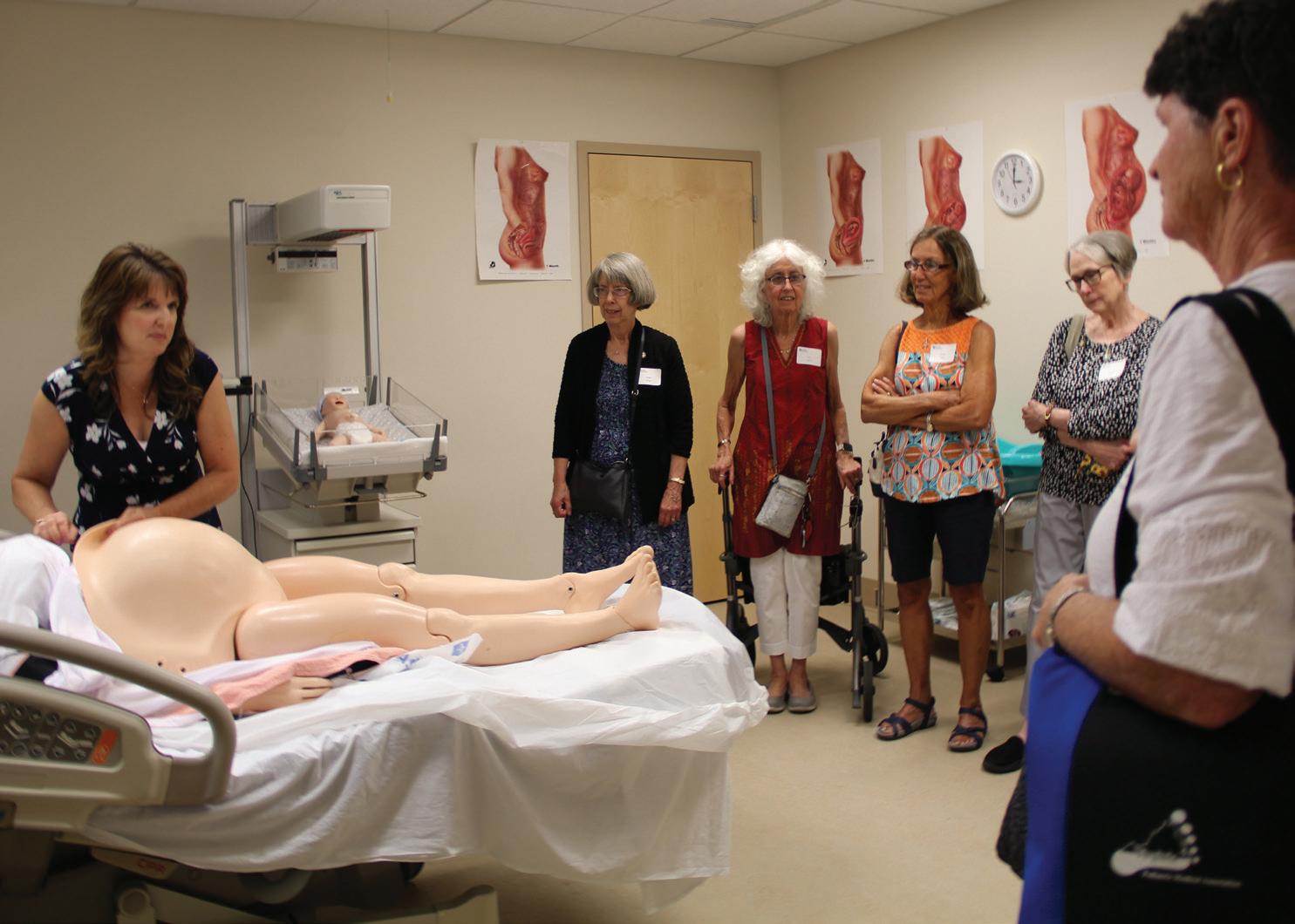
“We thought it would be nice to have our class come back to see what changes have happened at the university and in the college. It was really interesting to see and hear about all of the innovations and improvements to the simulation lab. Dean Badzek was even able to talk with us about her
vision and where she hopes to see the college progress to in the future,” said Songer.
Seeing the improved and innovated simulation lab and overall nursing program was not only interesting in terms of how nursing education has evolved over the years, but also rewarding for both Hanson and Songer, as they both give to the college. Giving to the college not only supports the students financially, but also supports the college’s nursing infrastructure.
“It’s a way of giving back to the college that gave us such a great education and paying it forward to new students and faculty that may need support,” stated Songer. “The students are the ones that will be taking care of us when we are older, so I want to make
Gifts, like that from the nursing alumni mentioned in this story, directly support important innovation in education.
To make a gift to the Ross and Carol Nese College of Nursing, scan the QR code with your phone’s camera, visit nursing.psu.edu/give, or connect with our Director of Development and Alumni Relations, Beth Gregg, by emailing bfg5201@psu.edu or calling 814-867-5534

sure they are well skilled in their application of the nursing process. People trust and have confidence in nurses, and you never stop being a nurse.”
Hanson and Songer both hold Penn State Nursing in high regard as the program that has given them not only great foundational nursing skills, but also lifelong friendships — the perfect mix of people and environment.
“Penn State definitely gave me the foundations and broad background in nursing clinical skills that I needed when I first joined the military,” said Hanson. “And we were all in it together, we all relied on one another, and I think that’s why the bonds of this group are so interwoven.” +
. . . we were all in it together, we all relied on one another, and I think that’s why the bonds of this group are so interwoven.
The Ross and Carol Nese College of Nursing hosted its newest lecture series for the nursing community and beyond. The Gunter-Gooding DEI Lecture Series in Nursing centers on challenges and opportunities in nursing and heath care related to diversity, equity, inclusion, and belonging.
The first lecture of the series featured G. Rumay Alexander examining racial disparities found in nursing through a talk titled, “From the Hall to the Walls: A Racial Reckoning in Nursing.” Alexander is a professor in the School of Nursing, assistant dean of relational excellence at the Adams School of Dentistry and formerly the associate vice chancellor for diversity and inclusion/chief diversity officer of the University of North Carolina at Chapel Hill.
Alexander has a wide range of experience contributing to transformative initiatives across healthcare and nursing. She served as the American Nurses Association’s scholar-in-residence and advised the development of the National Commission to Address Racism in Nursing. She
holds a Bachelor of Science in Nursing from the University of Tennessee, Knoxville, a Master of Science in Nursing and family nurse practitioner from Vanderbilt University, and a doctorate in education, administration, and supervision from Tennessee State University.
“We are fortunate to have a scholar of the caliber of Dr. Alexander as our premier speaker in the inaugural launching of the Gunter-Gooding DEI Lecture series. With this series Penn State Nursing reaffirms its commitment to do all that it can to educate a diverse and inclusive future nursing workforce that will better serve all those in our multicultural society,” stated Sheldon Fields, research professor and associate dean for equity and inclusion at the Ross and Carol Nese College of Nursing.
The Gunter-Gooding Lecture series is named in honor of two African American women who served as head of the nursing department at Penn State. Laurie Martin Gunter served as head of the Department of Nursing from 1971 to 1976, and again as interim department head from 1984 to 1985. She retired as professor
emerita in 1987 after 16 years of University service. She was a well-respected researcher with a focus on nursing care of the older adult. She held Fellow status in the Gerontological Society of America and the American Academy of Nursing and was an elected member of the Institute of Medicine of the National Academy of Sciences. Gunter held a nursing diploma from Meharry Medical College, a Bachelor of Science in home economics from Tennessee Agricultural and Industrial University, a Master of Arts in education from Fisk University and a doctorate in human development from the University of Chicago. She passed away on June 15, 2015.
Marion Gooding was the fifth head of the nursing department at Penn State and served from 1985 to 1987 when the department was part of the College of Health and Human Development. She also served as the dean of the School of Nursing at Tennessee State University prior to her arrival at Penn State. Gooding received her diploma in nursing from Saint Mary’s school of nursing, a bachelor's and master’s in nursing from Teachers College, Columbia University, and doctorate in educational administration in higher education from Vanderbilt University. +
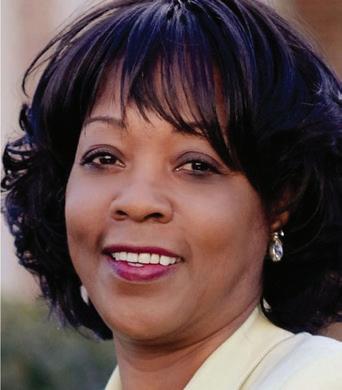
when they get an animal that’s diagnosed with a terminal illness. The organization then assembles and sends a care package tailored to each animal. Incorporating Love, Vincent and its philosophy into the classroom comes at a muchneeded time,
For many college nursing students, the grieving process is somewhat of an unknown. They have yet to experience it personally.
But as future nurses of the world, they can count on confronting death and dying. That’s why Penn State Shenango nursing professor Amy Nagy has begun incorporating a local nonprofit — Love, Vincent — into her classroom to help students better understand and cope with the grieving process.
Love, Vincent is a nonprofit that supplies care packages for dogs and cats who have been diagnosed with a terminal illness to provide support and comfort to these animals and their families. Established to honor the life of the founder’s dog, Vincent, the organization spreads joy and love to the communities it reaches.
Many Shenango Valley veterinary hospitals partner with and refer patients to Love, Vincent
Nagy explained, as the COVID-19 pandemic has pushed many of the nation’s early-career nurses who are unaccustomed to the death and dying process to their limits.
Nagy’s Death and Dying class teaches students of all majors about attitudes towards death, pathology, funerals and estate planning, ethical issues, historical and cultural perspectives on death, and much more.
Bringing together these course objectives, students can opt to participate in the Love, Vincent project in a very practical way. Students are provided materials to make blankets for the furry patients.

“I wanted to give the students a project that would connect the course to a real-world situation and show how the grieving process is different for everybody. While the project focuses on animals, as an animal lover, you understand that they’re like family and still find that grief connection,”
Nagy said. “And some students are newer nurses, so it’s a great way for them to navigate these feelings of grief and loss when treating patients in a less threatening environment.”
Nagy and her students routinely come together on campus to tie the blankets and talk about course topics that have been covered throughout the semester. She then collects and delivers the blankets to Love, Vincent’s founder, Rachel, who has appreciated the students’ help and love for the project. Nagy expressed that her students even go above and beyond with the project, tying extra blankets on their own time, as well as buying bags, toys and treats.
“One of the things that I was really terrified of as a new nurse was experiencing someone die; what does it look like, what does it smell like, what’s it feel like, what do I say, what do I do,” Nagy recalled. “So, my goal with the death and dying class is to try and get them more comfortable with how they feel and how they react to the death and dying process, and how they respond to the patient and family. The Love, Vincent project is great because it allows the younger nurses, who haven’t had a lot of personal experience with death to start talking about grief and loss.” +

The Penn State Ross and Carol Nese College of Nursing has been named a Center of Excellence (COE) by the National League for Nursing (NLN).
The college achieved this recognition for “creating environments that promote the pedagogical expertise of faculty,” according to the league, exemplifying the college’s investment in its nurse educators and their professional growth. Penn State Nursing is the only school throughout the commonwealth to hold a designation in this category.
“Our educators are key to preparing the next generation of nursing leaders,” said Laurie Badzek, dean of the college.
“We are honored to receive such prestigious recognition, and we are proud to support our faculty and their development.”
Beverly Malone, NLN president and CEO, said, “NLN Centers of Excellence help raise the bar for all nursing programs by rolemodeling visionary leadership and environments of inclusive excellence that nurture the next generation of a strong and diverse nursing workforce to advance the
health of the nation and the global community.”
In September, Penn State Nursing and 15 other exceptional organizations, including schools, teaching hospitals, and clinics, were inducted and formally recognized at the NLN Summit during the Honors Convocation. To mark this monumental milestone, the college sent a delegation of representatives to receive the award during the convocation. The delegation consisted of faculty, staff, and administrators all of whom played a significant role in the college’s achievement.
Further, the college hosted a reception during the Summit to celebrate the new designation and enjoyed visiting with NLN leadership during the event. Attendees also enjoyed a variety
of educational sessions ranging in topics from simulation to competency-based education models. There was even a poster presentation from our Penn State Altoona faculty representatives.
Becoming a Center of Excellence is a voluntary process. Programs are required to be accredited, and the NLN peerreview process aims to distinguish and recognize organizations that excel in sustaining excellence while pursuing their individual missions.
The National League of Nursing began awarding COE designations in 2004, and currently there are fewer than a hundred nursing schools that have earned this recognition over the years.
The criteria used to define excellence in the category of “creating environments that
Our educators are key to preparing the next generation of nursing leaders.

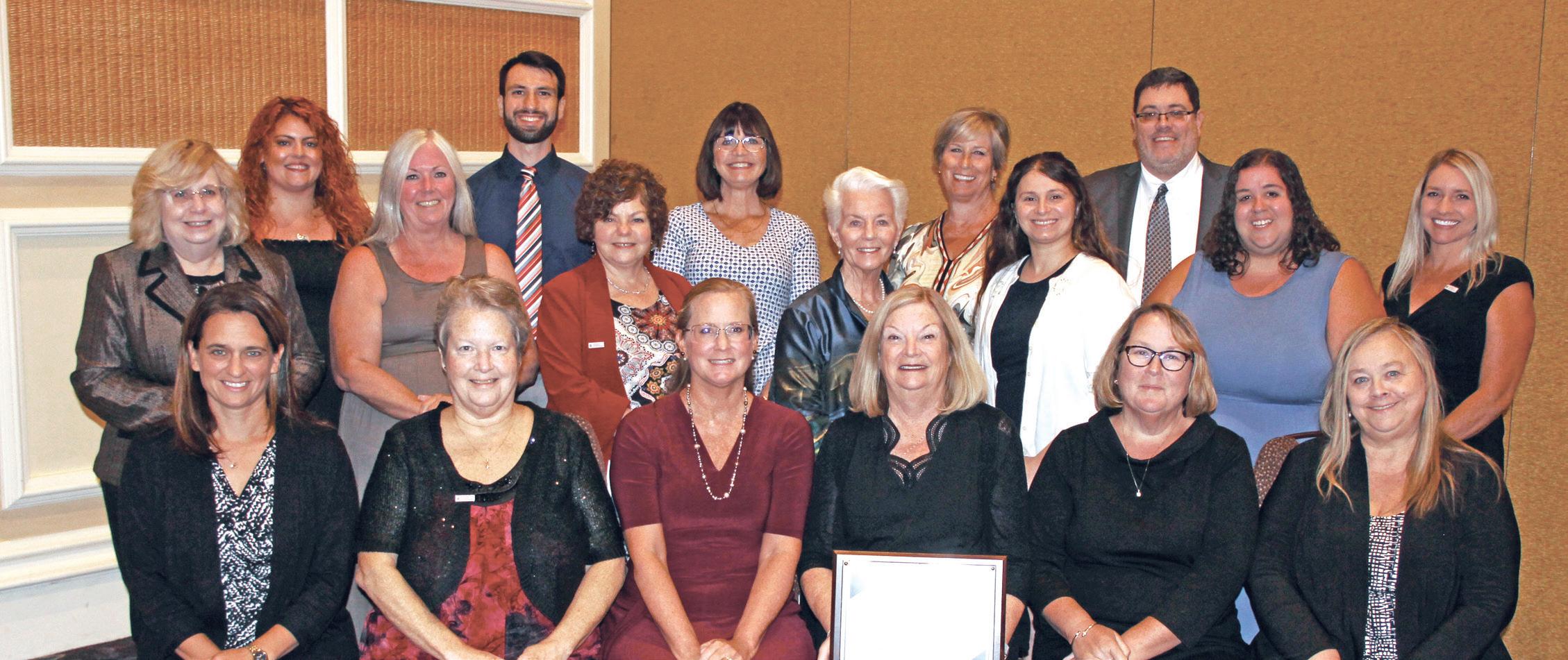
promote the pedagogical expertise in faculty” include promoting excellence in teaching; advising and curriculum development; promoting innovation; and creation of a preferred future for the profession, while also supporting faculty development in building experiential learning opportunities and actively engaging in their communities.
“Our unique structure, delivering our accredited curriculum at 12 Penn State campus locations, plus the World Campus, means nearly 3,000 students enrolled in our college are being educated by world-class faculty,” shared
Badzek. “Penn State Nursing is true to its mission, and students in our program can be assured they are learning from the best.”
The Ross and Carol Nese College of Nursing embodies the University’s One Penn State 2025 mission by partnering with campuses across Pennsylvania to deliver its curriculum. Regardless of location, every student enrolled in nursing receives the same education. This model enables the University to support the nursing profession throughout the state, especially in rural areas, by preparing nurse leaders to deliver quality care everywhere. +

Your support assists the college in continuing our mission of building long-term excellence and innovation in education to develop the nurses of tomorrow.
To make a gift to the Ross and Carol Nese College of Nursing, scan the QR code with your phone’s camera, visit nursing.psu.edu/give, or connect with our Director of Development and Alumni Relations, Beth Gregg, by emailing bfg5201@psu.edu or calling 814-867-5534

Jocelyn Anderson, assistant professor and researcher, was recently awarded a National Institute of Mental Health (NIMH) grant for her research study titled ‘Development of a patient-provider decision aid for HIV Post-Exposure Prophylaxis (PEP)’.

In conjunction with Co-PI Jessica Draughon Moret, assistant professor of clinical nursing at the University of California Davis, Anderson is developing, refining, and piloting an appbased multimedia decision aid to support individuals who have been exposed to HIV, with special consideration to victims of sexual violence. The decision aid will assist medical providers in more effectively implementing HIV PEP by helping patients better understand the HIV PEP treatment option.
HIV PEP is a prescribed
medicine taken orally for 28 days to prevent HIV after possible exposure to the virus and is intended to be started within 72 hours after the exposure. However, due to communication variability and priority disconnect between provider and patient, implementation of the HIV PEP medication has shown to be inconsistent.
The app-based multimedia tool is being formulated off the basis of eliminating provider biases, presenting concise information to improve the process of information sharing and decisionmaking, and incorporating an opportunity for patients to reflect on key priorities shown to impact decision-making and adherence (e.g., social support/stigma, HIV risk perception, cost/access, side effects).
Using these core foundations,
the decision aid will provide a structured and neutral script for medical providers to follow and give patients a comprehensive explanation of HIV, risk factors, HIV PEP, and the ability to rank their medical priorities, such as whether they feel their mental health following a sexual assault
is more important than taking HIV PEP, or vice versa. Keeping in mind these priorities, the provider can then tailor their communication to the patient more effectively, and in turn the medication.
“Through our clinical practice, as well as working with others, we have seen how those conversations happen and how protocols from the CDC leave a lot of that discussion and decisionmaking up to the individual provider,” said Anderson. “We have been looking at some of the challenges in those discussions, and our goal is to build the appbased tool to help facilitate those conversations and provide standardized education for patient decision-making.”
Anderson and Draughon Moret anticipate that the multimedia decision aid will allow patients to experience less decisional conflict
Interdisciplinary collaboration is the hallmark of research at the Ross and Carol Nese College of Nursing. Faculty partner with scientists within and beyond Penn State on research that supports the optimization of our physical and mental health and wellness across the lifespan. Our specialities include:
GERONTOLOGY
• Person-centered care, dementia/ delirium, cognitive health
• Age- and dementia-friendly health systems
PALLIATIVE AND END-OF-LIFE CARE
• Individuals and families managing lifelimiting conditions
PHYSIOLOGICAL AND MOLECULAR MECHANISM UNDERLYING HEALTH AND WELL-BEING
• Sleep, mood, cognition, adolescent behavioral endocrinology
HEALTH AND HEALTHCARE DISPARITIES
• LGBTQ, HIV, college students, sexual/ interpersonal violence, rural
INTERVENTION AND IMPLEMENTATION SCIENCE
TELEHEALTH
NURSING EDUCATION
NURSING AND PRECISION
HEALTHCARE
ETHICS IN HEALTHCARE
and, in turn, make completion of the entire 28-day medication more likely for patients who chose to initiate the HIV PEP option. Upon a successful research phase, the pair hopes to implement the tool on a national large-scale basis. HIV PEP is an underutilized and understudied tool in the current HIV epidemic. Successfully improving HIV PEP implementation is one step in improving care and outcomes for a highly marginalized group of individuals at risk for HIV. +
We are developing solutions to improve human health and the quality of life.
To help us, scan the QR code with your phone’s camera, visit nursing.psu.edu/give, or connect with our Director of Development and Alumni Relations, Beth Gregg, by emailing bfg5201@psu.edu or calling 814-867-5534.

As the COVID-19 pandemic pushed nursing education into a digital world, the benefits of virtual reality (VR) simulation in the classroom became quite apparent. Privy to its advantages are Debra Loop, assistant teaching professor and simulation laboratory coordinator, and nursing instructor Heidi Rich; both women plan to incorporate VR simulation into the Pediatrics Nursing Class at Penn State Erie’s Behrend College.
As part of a joint VR project with Penn State Fayette, a $5,000 Teaching Transformation and Innovation Grant from the Schreyer Institute for Teaching Excellence was awarded to cover the cost of the VR software. Using an already-established VR simulation lab at the Behrend campus, Loop piloted the diabetic ketoacidosis (DKA) and asthma scenarios for her pediatrics students.
Loop has long recognized the importance of VR and stays up-to-date on translational and innovation trends by attending simulation conferences and joining simulation organizations. Through exposing herself to these events and organizations, she discovered the Oxford Medical Simulation company.
“I learned about Oxford Medical Simulation several years ago through my own interest of exploring VR,” said Loop. “Because of COVID, we could not do the pilot study as we had intended with the VR headsets. So, they provided free scenarios to
educators, and we took advantage of that by using the on-screen version while the students were isolated.”
In the most recent VR simulation pilot, 42 third-year students participated two at a time for 20-minute increments using Oculus headsets in the simulation lab. Each scenario included opportunities to delegate tasks to a patient care technician, the ability to interact with both child and parent, administer medicine, wash hands, obtain a history and perform an assessment, and perform bedside tasks. After the 20-minute session, students received a report and rationale on their performance and debriefed afterward.

“The pediatric scenarios gave each student the ability to be the primary nurse, to be independent and make decisions on their own. There’s nobody to fall back on,” stated Loop. “Through the VR simulation, we are able to standardize the experience so that every student will be able to be exposed to the same knowledge.”
Throughout this process, Loop has maintained that she was very pleased with the outcome and believes it is a great way for each
individual student to be more independent in their own work and gain better knowledge of hospital technology and overall care for the patient.
Loop received valuable student feedback that will in turn help improve the VR simulation experience for future nursing students.
Loop is confident in the new interactive classroom addition and looks forward to permanently integrating the VR simulation into her student’s learning curriculum. She hopes to soon submit a proposal for future funding to establish Behrend’s own nursing VR simulation program. +
The VR simulation allows for more of a collaborative hands-on experience where we get to physically assess patients, as well as documentation and oral communication. — Nursing student feedbackA student uses an Oculus headset
As the middle child of firstgeneration Pakistani immigrants, Shermeen Asif Muhammad has faced many trials and tribulations. But with her trust in Allah and the devotion of her parents, Muhammad has never shied away from pursuing her goals, especially now on her newest journey to becoming a Nurse Practitioner in the Ross and Carol Nese College of Nursing.
In the spring of 1994, her parents, Asif Muhammad and Hasnaina Asif Muhammad, were married in Pakistan. After enduring a lengthy process rife with setbacks, the pair successfully obtained their U.S. Visas and moved to the United States. With an uncertain future and few resources, the pair worked days and nights for over 25 years, giving up their own aspirations so they could provide their three

wished for themselves — a stable, reputable career in healthcare.
“My parents worked non-stop at different stores and restaurants, sometimes working two jobs at once. My mom would work in the morning and my dad would go at night. They would barely even see each other because my sister and I were very young, and someone had to take care of us. It was a very rough beginning,” said Muhammad.
While Muhammad’s parents struggled, they also inspired their children by instilling in them the drive to become future nurse practitioners. Seeming impossible to Muhammad initially, she, along with her elder sister, Tahreem, were accepted into Penn State Nursing’s graduate program. Tahreem is currently pursuing her master's at Penn State Hershey with plans to work toward her DNP, while Shermeen is pursuing her DNP-NP through Penn State World Campus.
The family was confident with the college’s DNP program, which is one of world-renowned recognition with academic excellence being administered by expert faculty. Soon after beginning the program, it was clear to both Muhammad and her parents that the Penn State Nursing faculty and staff are dedicated to providing students with individualized mentorship and guidance, as well as proving the program would prepare Muhammad and her sister to become successful healthcare professionals.
“My family and I have always known Penn State to be a very well-respected university. And now as a student, I know the college’s faculty and staff to be very patient, very welcoming, and down-toearth. At the same time, they are honest. They told me that it will be hard, but at every turn, they have been there to help and support me,” exclaimed Muhammad. “Once I was accepted into Penn State and the DNP program, I really proved to myself that I can do anything.”
Building upon her parent’s dreams for their children, and because of the hands-on clinical experience at Penn State, Muhammad plans to become a nurse educator. Like her parents, she wants to inspire the next generation of nurses, ensuring they are equipped with an understanding and appreciation for the emotional aspect of nursing.
“Many people thought we wouldn’t ever even graduate high school because of our background and financial hardship,” said Muhammad. “However, life will present itself in peaks and valleys, and those who are determined to achieve their goals and understand where their support comes from will be successful. If it weren’t for my parents, Allah, and the education and support I’ve received at Penn State, I would have never been an honor graduate in high school or university, I would not be wearing a badge that says Registered Nurse, and I would not be holding the respect of the white coat.” +
Harrisburg business graduate and nurse anesthetist finds purpose in giving and volunteering
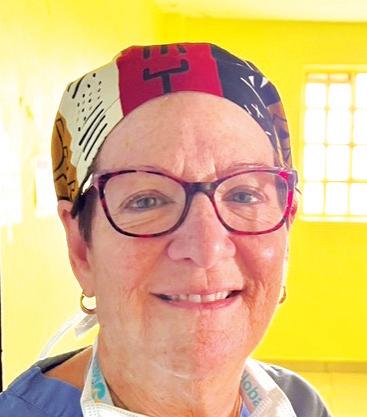
As a longtime healthcare professional who has seen the field from many roles and perspectives, Suzanne Miller is keenly aware of the benefits of having highly educated nursing students. The Suzanne and James Miller Scholarship at Penn State Harrisburg, created by Miller and her late husband, James, is helping both future nurses and their patients and communities they will ultimately serve.
Miller said, “We felt that it was important to try to keep the nursing graduates in the area. I was very impressed by Penn State Harrisburg’s seconddegree program for those with other degrees to earn nursing credentials, with the program’s extremely high standards as well as the students’ dedication and commitment to the program.”
Miller explained that recipients of the scholarship are required to maintain a certain GPA, but otherwise are chosen by the
nursing faculty at Penn State Harrisburg. She also explained that some of the recipients have been practicing physicians from Cuba, who had dreams of coming to the U.S. to pursue their career in medicine.
Established in 2018, the scholarship is already having an impact. “We’ve received letters from recipients who write about their appreciation for receiving the scholarship, their nursing aspirations and goals, and thanking us, so it’s been rewarding in that sense,” said Miller. “Given the nursing shortage and nurses leaving the field due to the pandemic, I’m hoping the scholarship will enable more people to go into nursing and be able to fill those needed areas in the healthcare field.”
Miller is motivated to give not only financially, but also with her time. She is actively involved with Operation Medical, a non-profit organization of trained medical professional volunteers who provide high-quality medical care and education to communities in other countries that do not have adequate access to these urgent needs. +
These stories showcase the many ways you can impact the future of nursing.
To make a gift to the Ross and Carol Nese College of Nursing, scan the QR code with your phone’s camera, visit nursing.psu.edu/give, or connect with our Director of Development and Alumni Relations, Beth Gregg, by emailing bfg5201@psu.edu or calling 814-867-5534

Katelin McAndrew Mentz recently made a $10,000 pledge to support two campus awards at Penn State Scranton that honor the legacy of her mother, the late Linda McAndrew, RN, a beloved member of the campus’ faculty for over 20 years. When she passed away in 2017 at the age of 60, McAndrew left behind a legacy of caring and involvement that is still remembered at the campus to this day.
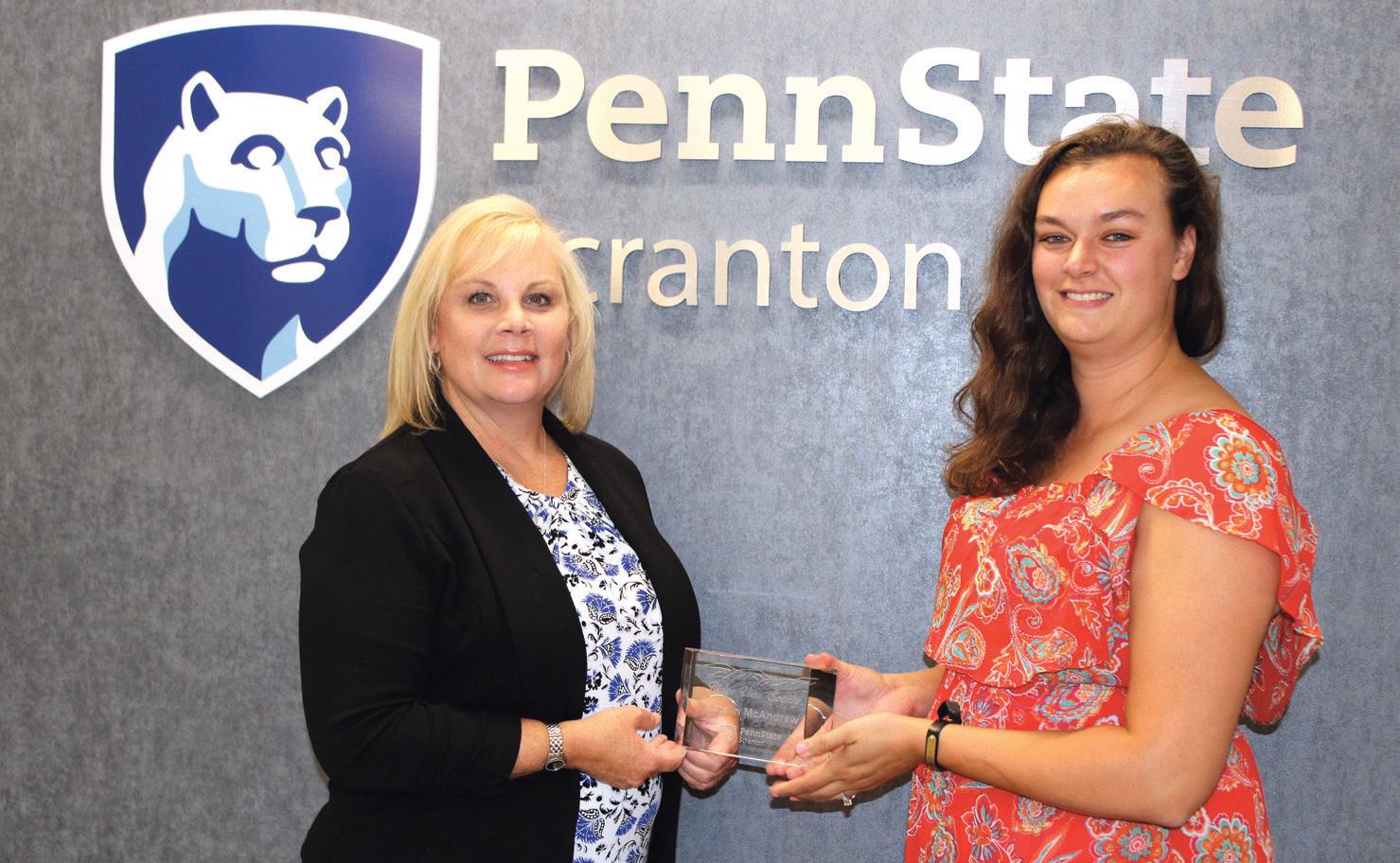
During her time at the campus, McAndrew not only taught classes, but also mentored nursing students in their required clinicals at local hospitals; worked with students and fellow nursing faculty members on research projects; and even organized a disaster training drill on campus for nursing students.
In 2018, nursing graduates donated a bench in McAndrew’s honor that now sits outside of the main entrance to the campus’ Nursing Suite, and two awards were created at the campus to provide financial help to students pursuing a nursing degree: The Lady with the Lamp: Linda McAndrew Memorial Gift of
Scholarship and The Knowing Nightingale. The names of both gifts reflect the work of Florence Nightingale (1820–1910), a social reformer, statistician, and nurse manager during the Crimean War, considered by historians to be the founder of modern nursing.
Through her new commitment to the funds, Mentz has made campus history by becoming the youngest member of its prestigious donor group, The Penn State Scranton Ridge View Society. Personally, Mentz wants to make sure that she and her husband, Justin, are using their resources, which include an inheritance from McAndrew, to do something positive and impactful that benefits others. It is also her goal to carry forward McAndrew's ideologies and beliefs in giving back.
According to Mentz, it’s not the age of a person or how much they have to give that is important. “Young people need to realize, even for those just starting out in their careers who don’t have a lot of money, that you don’t necessarily have to do something big to make a difference in someone’s life.” +
A$950,000 expansion of the nursing labs at Penn State Behrend gives students greater access to high-fidelity simulation manikins, which can mimic almost any health emergency, from cardiac arrest and epileptic seizures to a neonatal complication that endangers both the mother and her manikin baby.
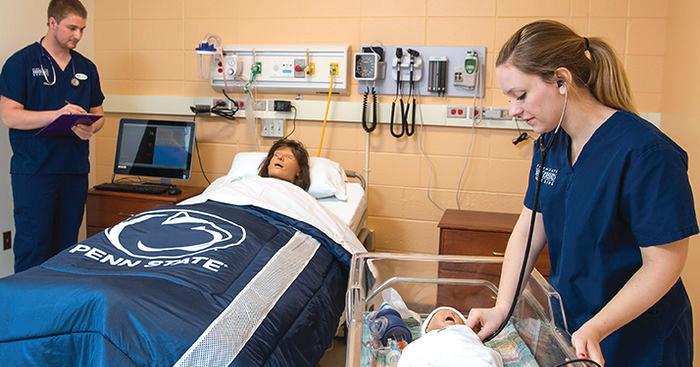
The real value of those manikins is in the number of students who now will have access to them: By expanding its simulation labs and upgrading its nursing skills lab — where classes can now watch video feeds from each of three new simulation bays — Behrend can open its nursing program to more students. The added capacity can support a 40 percent increase in enrollment.
The new simulation bays better prepare students for the countless scenarios nurses face. One lab is designed for intensive care and medical-surgical simulations; a second is equipped for obstetrical/ neonatal simulations. The third lab can be adapted for use in medicalsurgical, pediatric, or psychiatric simulations.
The expansion was funded by a grant from the Orris C. and Beatrice Dewey Hirtzel Memorial Foundation, which is based in North East, Pennsylvania. Previous gifts from the foundation provided more than $1 million for science education at Behrend. Additional equipment in the simulation bays was purchased through a grant from the Dr. and Mrs. Arthur W. Phillips Charitable Trust, of Oil City, Pennsylvania. +
In 2020, the Ross and Carol Nese College of Nursing Outreach and Professional Development office initiated the Health Minute project in collaboration with WPSU as a weekly, one-minute radio and digital program featuring information and strategies for living a healthy life.
The Health Minute took a holistic approach to the definition of “health” including physical, emotional, and mental health and wellness. The messages also addressed health and wellness across a person’s entire lifespan to share information and resources that affect the daily lives of the people in our communities. Initially planned as a one-year project, production support for the Health Minute was extended two additional years and was made possible by WPSU sponsors, Carline Crevecoeur, MD, and Michael Feffer, MD.
The final Health Minute aired in December 2022, bringing to a close an important project
related to health and wellness. Over the course of the project, 156 informative messages were developed by 42 expert faculty, five staff, and two alumni from our college.
Messages included timely information about major health-related topics such as cardiovascular health, cancer prevention, and mental health awareness to seasonal message topics, such as personal safety, staying current with your immunizations, keeping a smart diet, and making time for routine exercise. Further, the Health Minute was instrumental in sharing helpful information and resources to support listeners in their pursuit of health and wellness during the COVID-19 pandemic.
“The Health Minute project was very successful in creating wellness and resilience messaging during a very challenging time when all our lives were dramatically impacted by COVID-19. I believe that through the messages, we helped remind
people to take care of themselves and their families in order to have a healthier life.” said Kelly
A. Wolgast, associate teaching professor and assistant dean of outreach and professional development.
WPSU at Penn State is a PBS and NPR Member station and a service of Penn State Outreach, supporting the community as a trusted source for news, information, and education. In a primarily rural service area of 1.3 million Pennsylvanians, WPSU maintains over-the-air, cable, satellite, and digital delivery to ensure free and broad access.
A sincere thank you to all who listened and learned from our Health Minute messages each week. We truly hope that our efforts helped Pennsylvanians stay healthy. +
To access prior Health Minute messages, visit: radio.wpsu.org/ show/health-minute
The Ross and Carol Nese College of Nursing and the Tressa Nese and Helen Diskevich Center of Geriatric Nursing Excellence (CGNE) have long been thought of as a leading powerhouses in the development of health care and quality of life for older adults in America.
Continuously reinforcing the acclamation, our geriatric-focused faculty and leadership members are recognized yearly with distinguished nursing awards for their research and community outreach. Most recently, Marie P. Boltz, Elouise Ross Eberly and Robert Eberly Endowed Chair and Ross and Carol Nese College of Nursing professor, received the 2022 Nightingale Nursing Research Award.
As designated by the Nightingale Awards of Pennsylvania (NAP) organization, the Nursing Research category recognizes nominees who have shown commitment to excellence in their nursing practice research, and as such have published findings that enhance nursing practice, patient care, education, and science in the academic and clinical practice settings.
“I am honored to receive the Nightingale Research Award and to be recognized along with all
of these amazing and dedicated nurses across Pennsylvania. I am fortunate to work with outstanding colleagues at Penn State and inspiring patients and their families,” stated Boltz.
Boltz’s research focuses on interventions that promote the cognitive and physical function and well-being of persons with dementia. Some of her projects include testing a family-nurse partnership to support functional recovery of persons with dementia during and after hospitalization, and implementation studies that help long-term care and acute care settings adopt enabling care approaches.
In addition to Boltz, Janice Whitaker, administrator and community liaison for the Tressa Nese and Helen Diskevich Center of Geriatric Nursing Excellence (CGNE) at Penn State, was named a 2022 Distinguished Educator in Gerontological Nursing by the National Hartford Center of Gerontological Nursing Excellence (NHCGNE).


The NHCGNE annually recognizes and celebrates a select group of nurse educators whose leadership has impacted students, faculty, providers, and older adults in diverse settings.
Whitaker has a professional
background in nursing, administration, leadership, education, quality improvement, and curricular and program development. Among her many accomplishments, she is a certified dementia practitioner and Dementia Live coach; leads a cohort of undergraduate nurse educators in providing mentorship to long-term care facilities on quality improvement initiatives in South Central Pennsylvania; chairs the Community Action Work Group for Age-Friendly Care, PA that developed the new “Living with Dementia” community education series with optional Memory Café program; and provides geriatric nursing expertise during Project ECHO (Extension for Community Healthcare Outcomes) educational sessions for both of these projects.
“Janice exemplifies a distinguished educator in gerontological nursing,” said Boltz, who also received the NHCGNE Distinguished Educator Award in 2021.
Congratulations to both Boltz and Whitaker for their distinguished recognition and their continued exemplary work in improving the study of gerontology as a whole and, in turn, the many lives of older adults. +
To learn more about CGNE, visit: nursing.psu.edu/CGNE
The Pennsylvania State University

201 Nursing Sciences Building
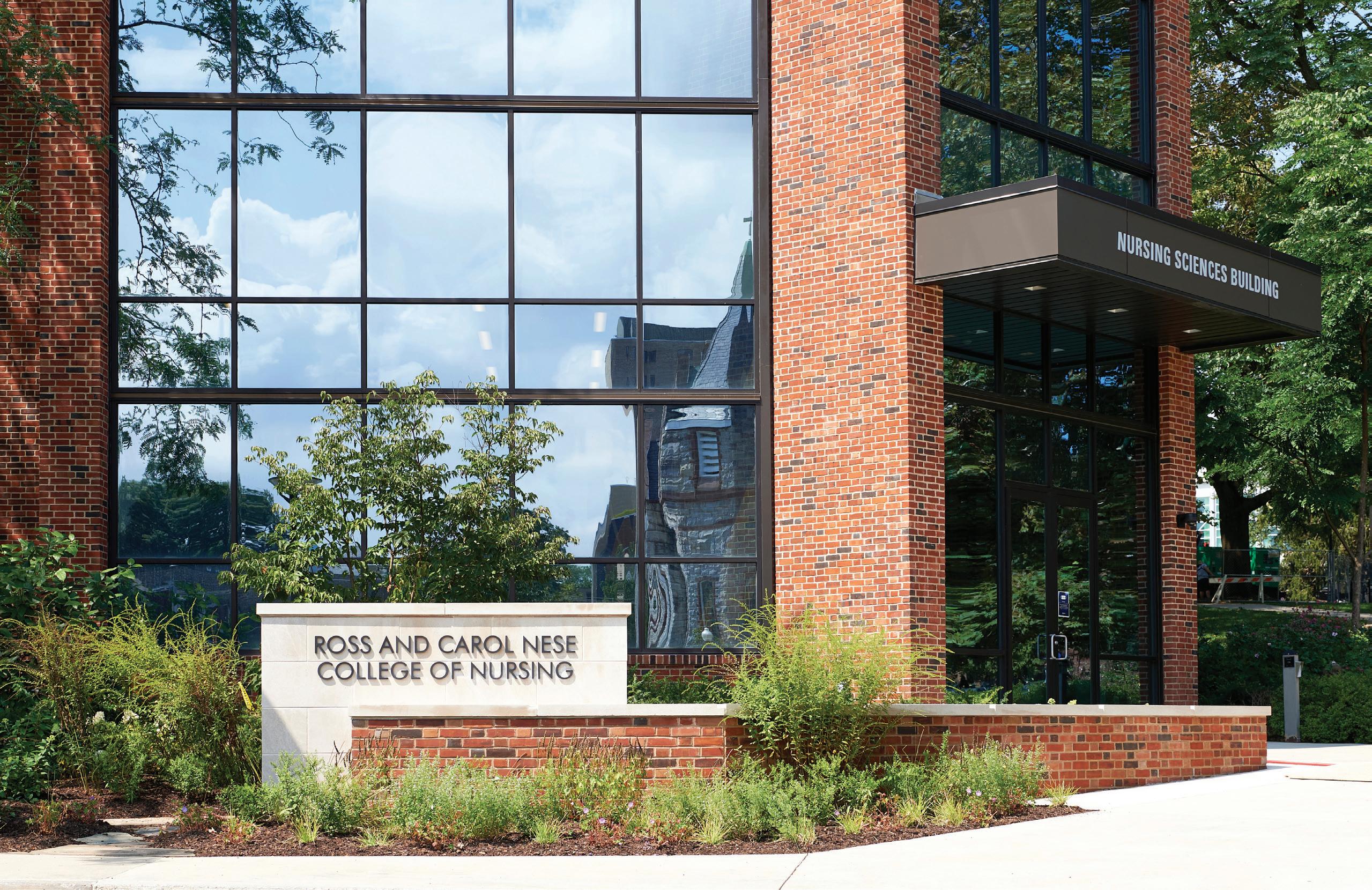
University Park, PA 16802-6501

nursing.psu.edu
